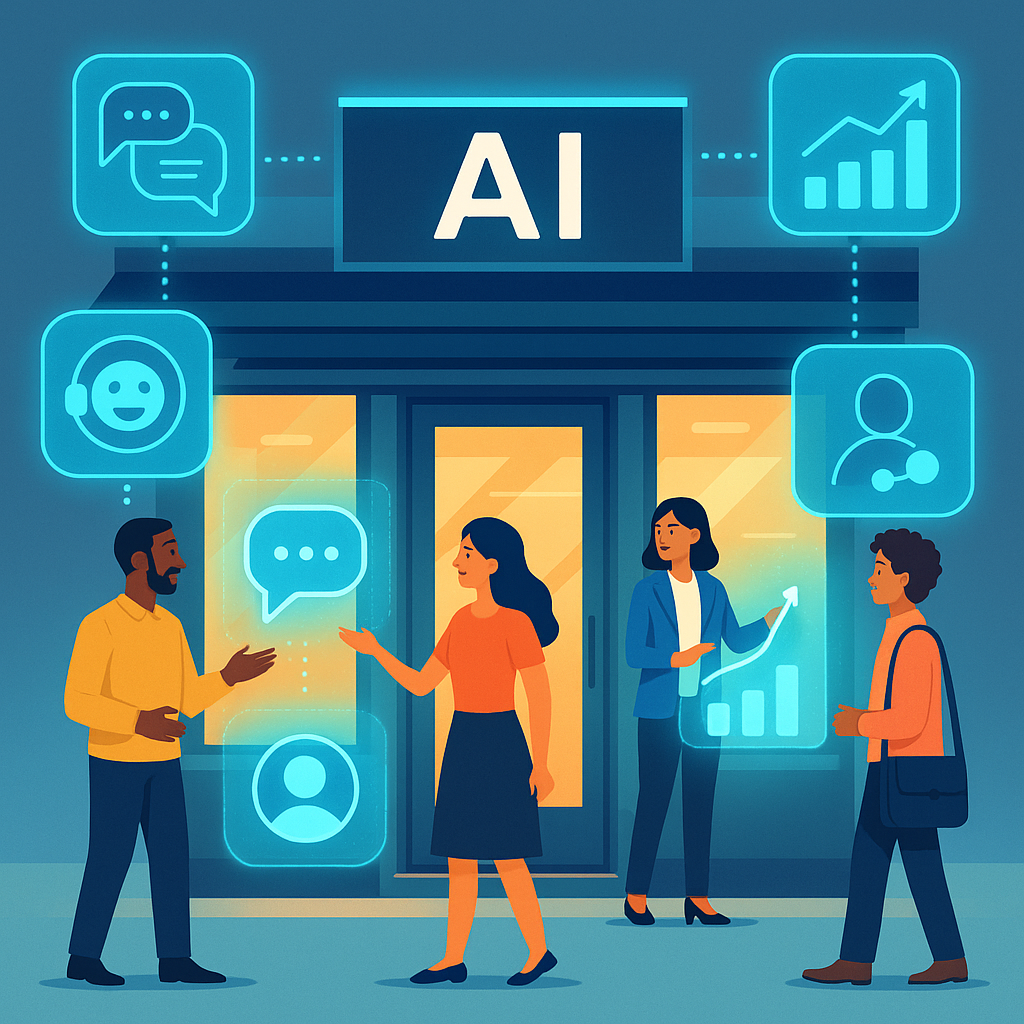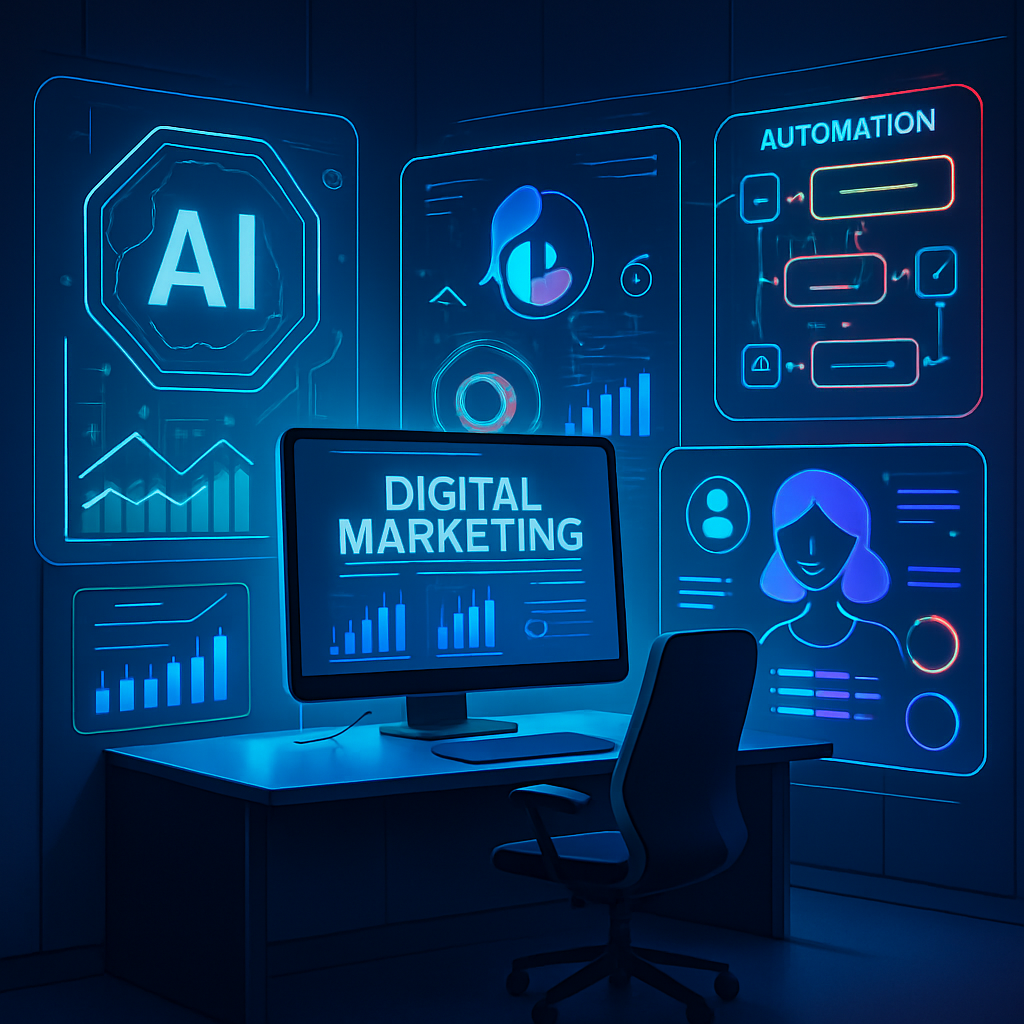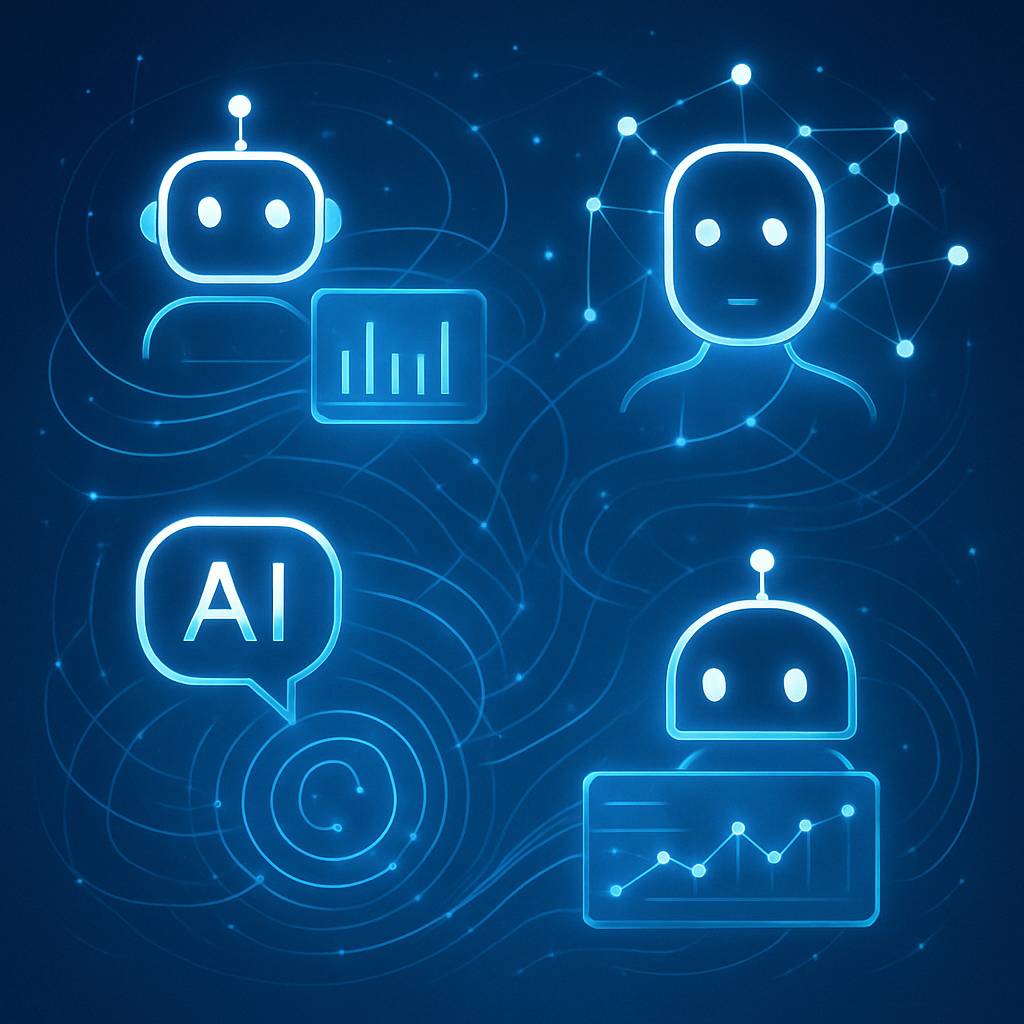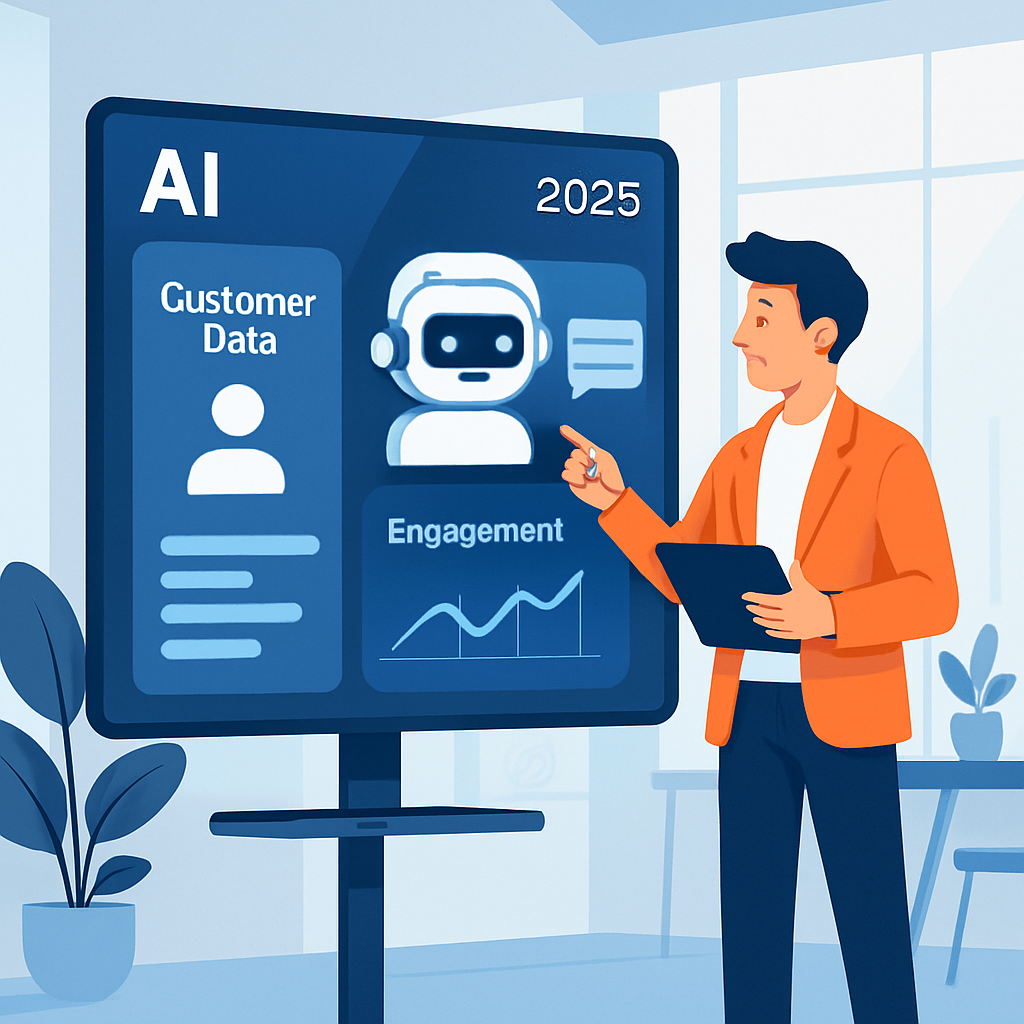
How Small Businesses Can Leverage AI to Boost Engagement and Drive Sales Growth
Introduction: The AI Advantage for Small Businesses
In 2025, artificial intelligence (AI) is no longer a technology reserved for large enterprises; it has become an accessible and powerful tool for small businesses eager to increase customer engagement and drive sales growth. From personalized marketing to automated customer service, AI enables small businesses to compete on a larger scale by optimizing experiences and tailoring solutions like never before.
Understanding the Landscape: AI's Role in Business Today
The evolution of AI has brought forth affordable, user-friendly tools that integrate seamlessly into small business operations. This growth is fueled by advances in machine learning, natural language processing, and data analytics, granting businesses, regardless of size, an innovative edge. Knowing how to exploit these advancements effectively is crucial for sustainable growth.
Key Ways Small Businesses Use AI to Enhance Customer Engagement
1. Hyper-Personalized Customer Experiences
AI algorithms analyze customer data to understand preferences, behaviors, and purchase patterns. For instance, a boutique online craft store uses AI-driven recommendation engines that suggest handcrafted items tailored to each shopper’s past purchases and browsing habits, leading to increased satisfaction and loyalty.
2. Intelligent Chatbots and Virtual Assistants
AI-powered chatbots provide instant, 24/7 customer support, answering inquiries and resolving issues with human-like interactions. A small organic skincare brand integrates a chatbot to guide customers through product choices based on skin type and concerns, enhancing engagement without the need for constant human oversight.
3. Predictive Analytics for Targeted Marketing
Predictive AI models help small businesses forecast customer needs and market trends. For example, a local café utilizes AI to analyze purchasing data, enabling targeted promotions during off-peak hours that boost visitor numbers and revenue.
4. Automating Social Media Management
AI tools automate content scheduling and analyze engagement metrics to optimize posting times and topics. A small fitness studio employs AI to craft posts based on trending wellness topics, ensuring their social media presence remains dynamic and engaging.
Driving Sales Growth Through AI Innovations
1. Dynamic Pricing Strategies
AI systems can adjust prices in real time based on demand, competitor pricing, and inventory levels. A small e-commerce business selling artisanal goods uses AI-driven pricing adjustments during holidays to maximize profits while remaining competitive.
2. Streamlining Inventory and Supply Chain Management
AI forecasts demand with greater accuracy, preventing stockouts and reducing excess inventory. A family-owned bookstore integrates AI forecasting that allows timely ordering and reduces storage costs.
3. Enhancing Customer Loyalty Programs
Personalized AI insights can tailor loyalty rewards to individual preferences. A boutique coffee shop uses AI to track purchase habits and offers rewards that uniquely appeal to frequent patrons, encouraging repeat business.
4. Optimizing Email Marketing Campaigns
AI-driven segmentation and content personalization improve open and conversion rates. A handmade jewelry shop employs AI to send tailored emails featuring items aligned with customers’ tastes, resulting in higher engagement and sales.
Challenges and Solutions for Small Businesses Adopting AI
While AI offers many benefits, small businesses face obstacles such as budget constraints, lack of technical expertise, and data privacy concerns. However, cloud-based AI platforms and user-friendly tools mitigate costs and complexity. Partnering with AI consultants or leveraging community-driven resources can further ease integration hurdles.
Case Study: Artisan Bakery’s AI-Driven Transformation
An artisan bakery struggling to expand its customer base implemented an AI-powered customer engagement platform in early 2025. The system recommended personalized baked goods based on seasonal preferences and previous orders, while AI chatbots handled routine inquiries. Within six months, the bakery saw a 30% increase in repeat customers and a 25% uplift in sales, demonstrating the practical impact of AI on small business success.
The Future Outlook: AI as a Growth Partner
As AI technologies mature, the scope for small business innovation will broaden. Emerging AI-driven augmented reality shopping experiences, voice commerce, and emotion recognition promise richer customer connections. Small businesses that invest thoughtfully now will be positioned to harness these future opportunities for enduring growth.
Conclusion
Artificial intelligence in 2025 offers small businesses unprecedented tools to deepen customer engagement and accelerate sales growth. By embracing hyper-personalization, intelligent automation, and predictive insights, small enterprises can compete with larger players and carve out unique market spaces. Navigating challenges with smart strategies will unlock AI’s full potential, transforming small business landscapes with innovation and agility.







